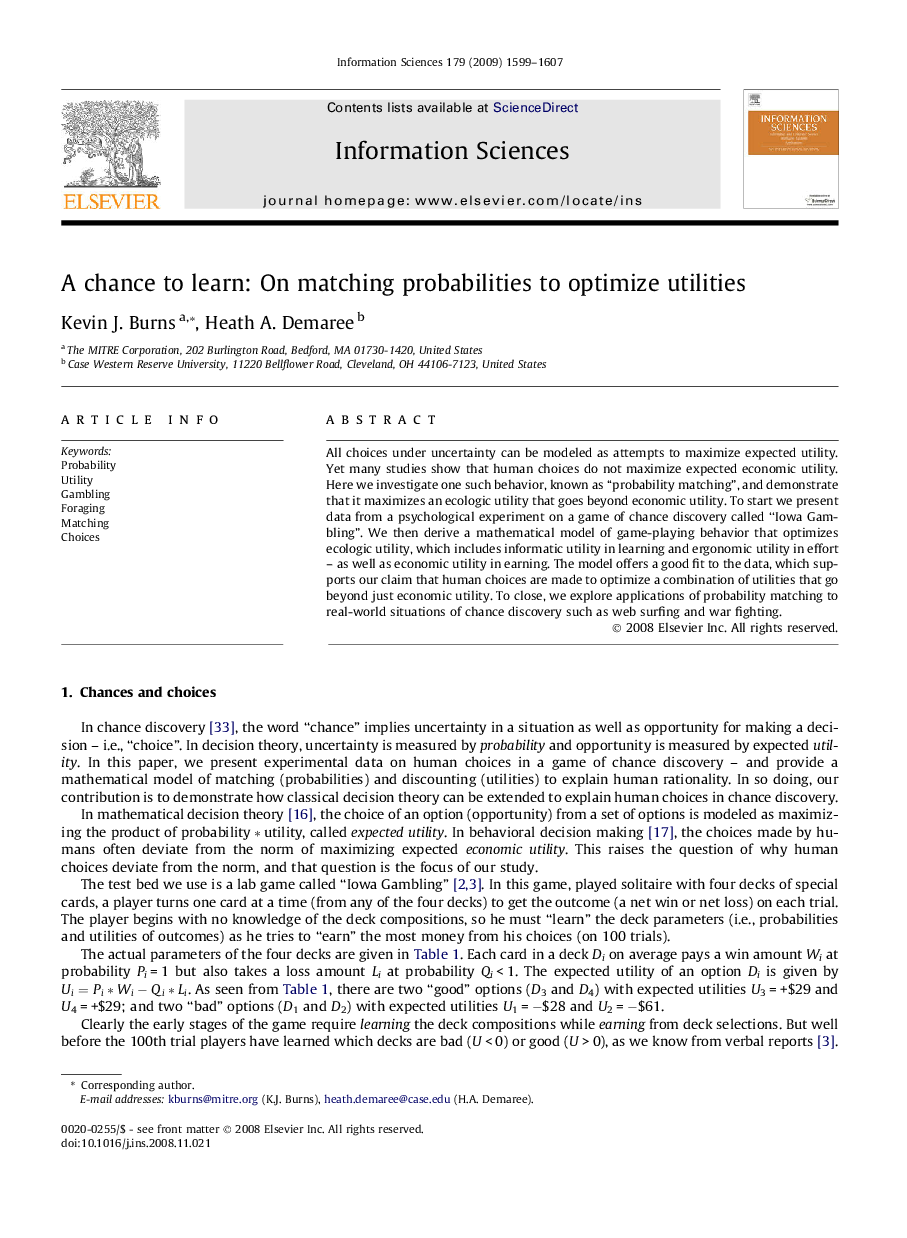| Article ID | Journal | Published Year | Pages | File Type |
|---|---|---|---|---|
| 394556 | Information Sciences | 2009 | 9 Pages |
All choices under uncertainty can be modeled as attempts to maximize expected utility. Yet many studies show that human choices do not maximize expected economic utility. Here we investigate one such behavior, known as “probability matching”, and demonstrate that it maximizes an ecologic utility that goes beyond economic utility. To start we present data from a psychological experiment on a game of chance discovery called “Iowa Gambling”. We then derive a mathematical model of game-playing behavior that optimizes ecologic utility, which includes informatic utility in learning and ergonomic utility in effort – as well as economic utility in earning. The model offers a good fit to the data, which supports our claim that human choices are made to optimize a combination of utilities that go beyond just economic utility. To close, we explore applications of probability matching to real-world situations of chance discovery such as web surfing and war fighting.
